We were lucky to catch up with Felipe Martin recently and have shared our conversation below.
Felipe, thanks for taking the time to share your stories with us today We’d love to go back in time and hear the story of how you came up with the name of your brand?
The name All Caps comes from one of my favorite artists, MF Doom. On his collaboration album Madvillainy with producer Madlib, there’s a track called “All Caps,” and on the cover there’s this tiny orange square in the corner. That little design detail inspired our logo.
The name worked on multiple levels. It was a nod to mushroom caps, a nod to being based near the nation’s capital, and—though unintentional—even a nod to Washington’s hockey team, the Capitals, whose slogan is “All Caps.” The heart of it, though, is the music.
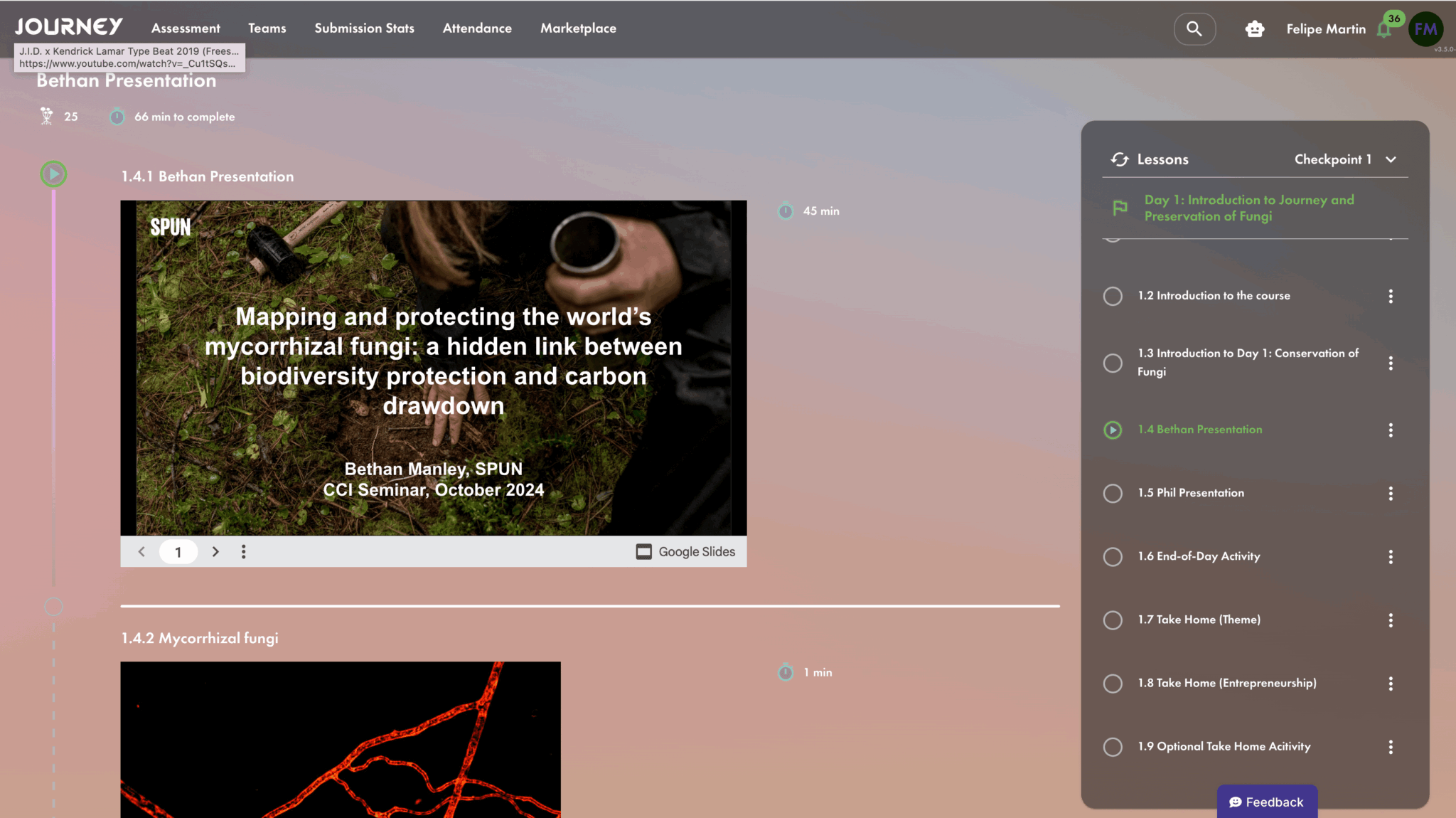
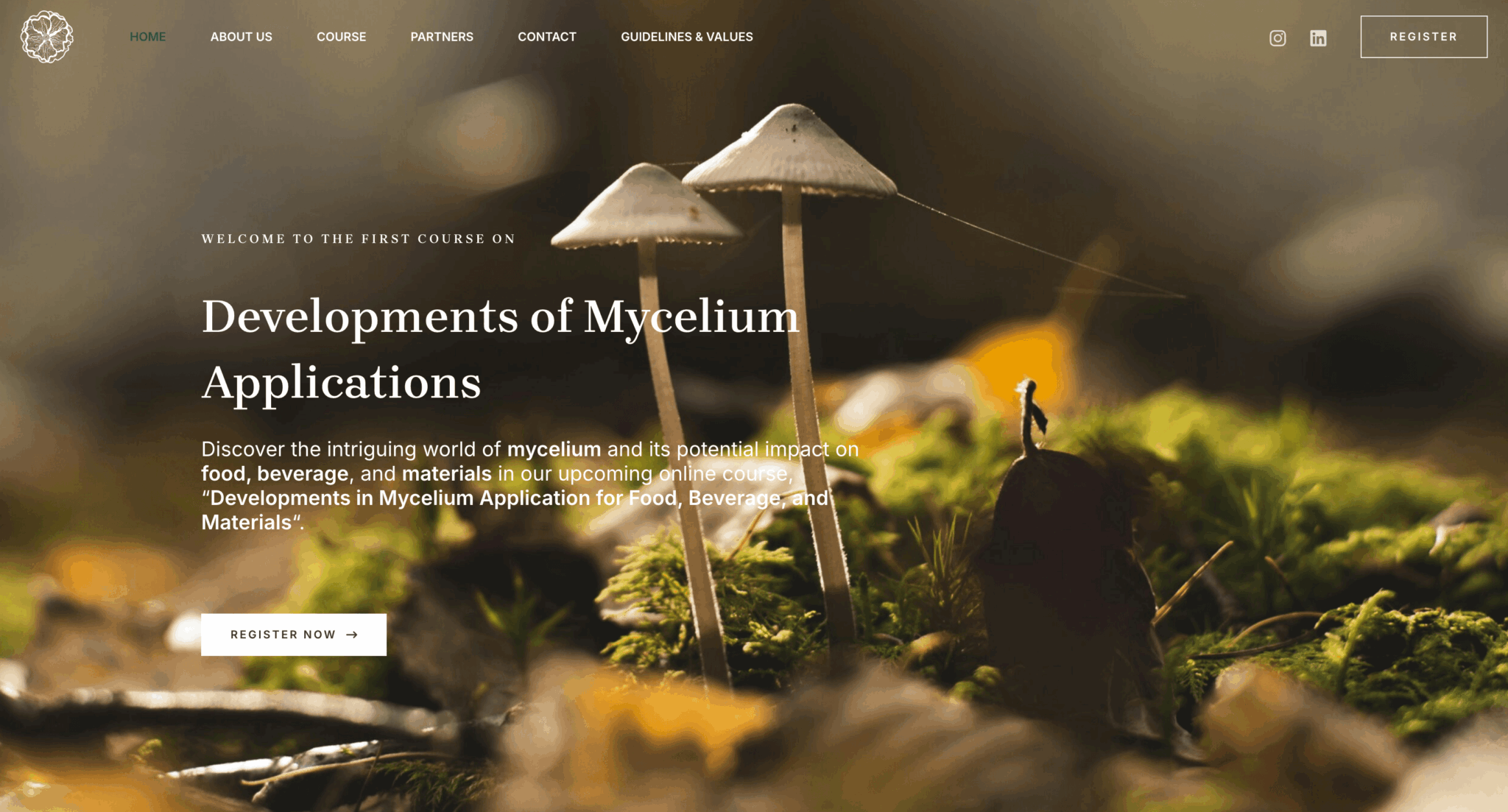
Felipe, before we move on to more of these sorts of questions, can you take some time to bring our readers up to speed on you and what you do?
I came across mushrooms through two paths that eventually met: one was farming, the other was environmental restoration. I had learned about mycoremediation, which is essentially how fungi can heal the planet—breaking down toxins, cleaning up waste, and balancing ecosystems. That idea stuck with me. At the same time, I was working at a local aquaponics farm that supplied restaurants, and they needed mushrooms. They gave me a small space to experiment, and that’s where I really began to understand how cultivation worked.
That start eventually became All Caps Farm, where we grow specialty mushrooms for restaurants, farmers markets, and households.
While selling mushrooms is great and sustains our business, it’s not the end goal. Mushrooms have a huge role in regeneration, sustainability, and education and while being delicious, yes, and chefs love them, they’re also deeply medicinal and one of the most sustainable food sources we can produce. They can be grown on wood waste, they replenish quickly, and they have the potential to provide nutrient-dense food in places where access is scarce. We see farming as a way to develop expertise and start conversations and partnerships to understand and expand the potential role of mycelium in creating solutions. If ALL CAPS is not deeply involved in finding solutions that make mushrooms more accessible in food deserts or further research in mycoreditation, we have failed.
What sets All Caps apart is that our mission is bigger than production. Many farms are laser-focused on scaling yields. I respect that, but our work is tied to education, research, and imagination. Through projects like DMA—Developments in Mycelium Applications—we bring together global experts to talk about everything from fungal architecture to mushrooms in outer space, and then we translate those ideas into hands-on workshops for everyone from PhD students to fourth graders. We also partner locally with chefs, bakers, and artisans, creating experiences where mushrooms aren’t just food, they’re an entry point into community and creativity.
That’s also why our logo doesn’t feature a mushroom—I don’t want us to be tied down to a single crop. Mushrooms were my doorway, but my vision is bigger: aquaponics, permaculture, regenerative design, and green technologies. What I want people to know is that saving the environment, protecting animals, and rethinking how we live is possible, and it can start with something as humble as a mushroom.
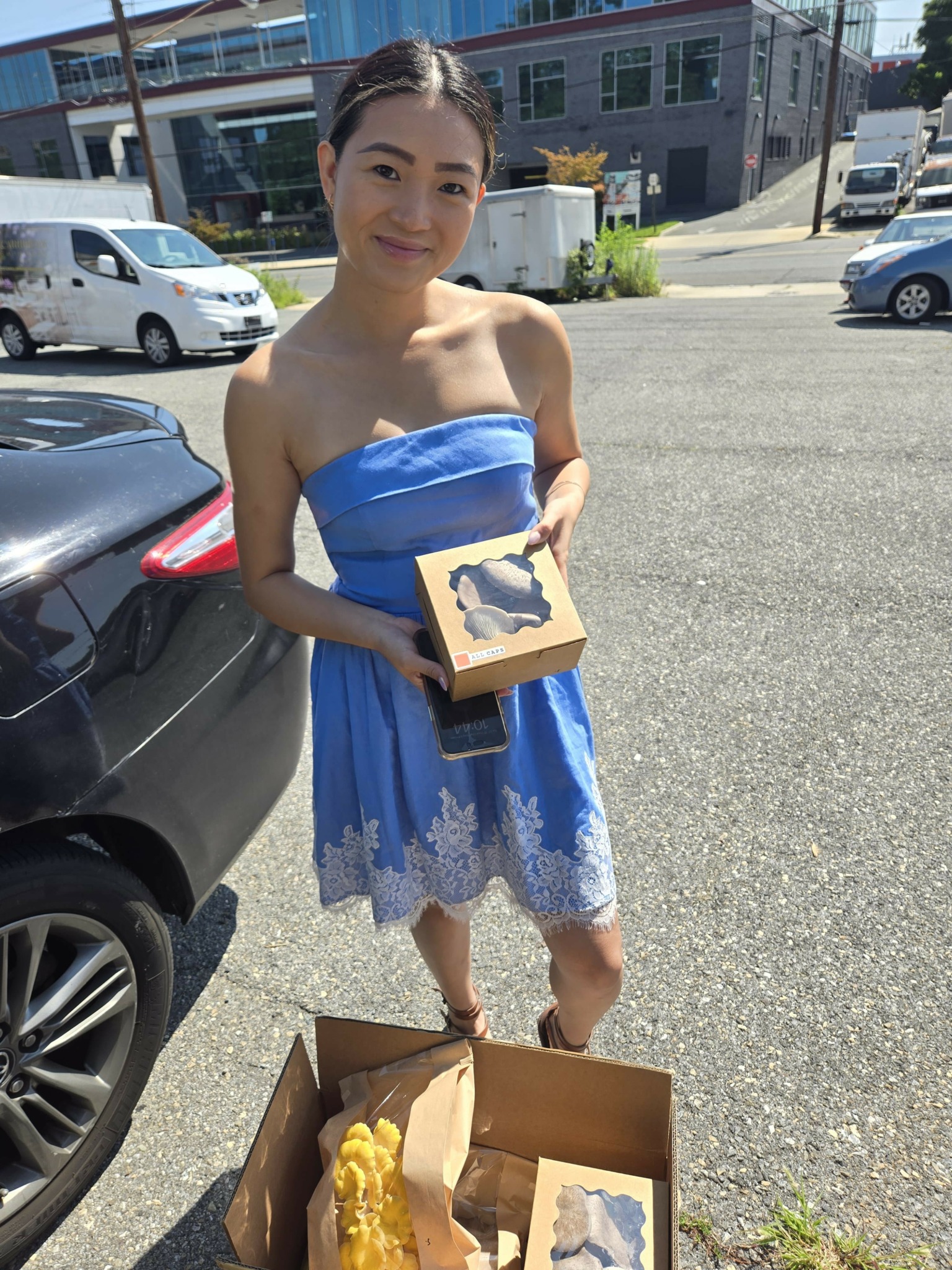
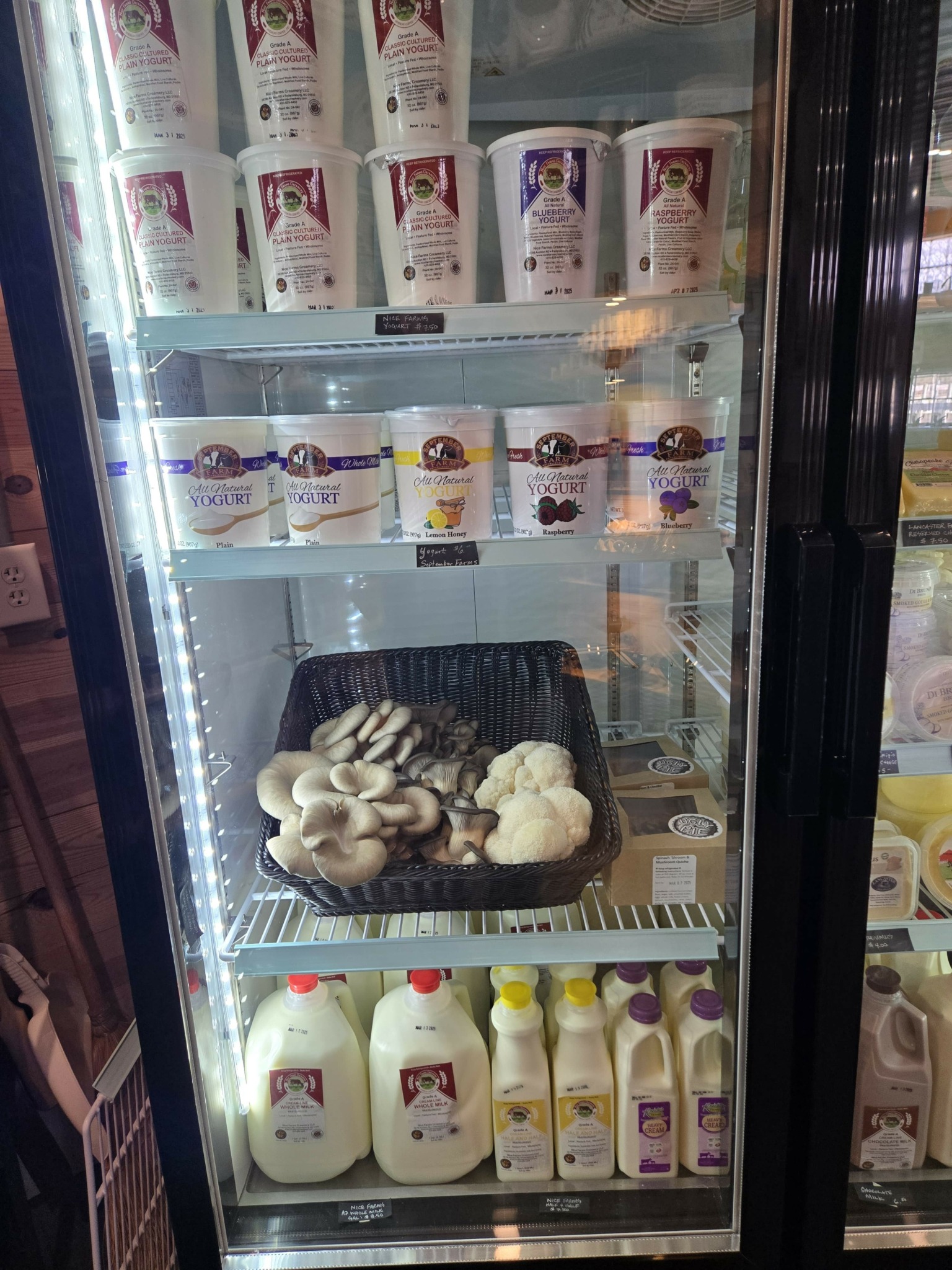
What do you think helped you build your reputation within your market?
At the end of the day, it’s face-to-face conversations. I’ve built our reputation by showing up in person, being transparent about what we are and what we aren’t. Mushrooms are unfamiliar to a lot of folks at first, but when you explain them openly—how they grow, why they matter, what you can do with them—they stop feeling foreign.
You don’t have to be a scientist or a farmer to be a part of the solution. I love to provide different entry ways to engage with mushrooms- from cooking classes, to virtual courses about mycelium, to brining a customized Monthly Mushie box to your home.
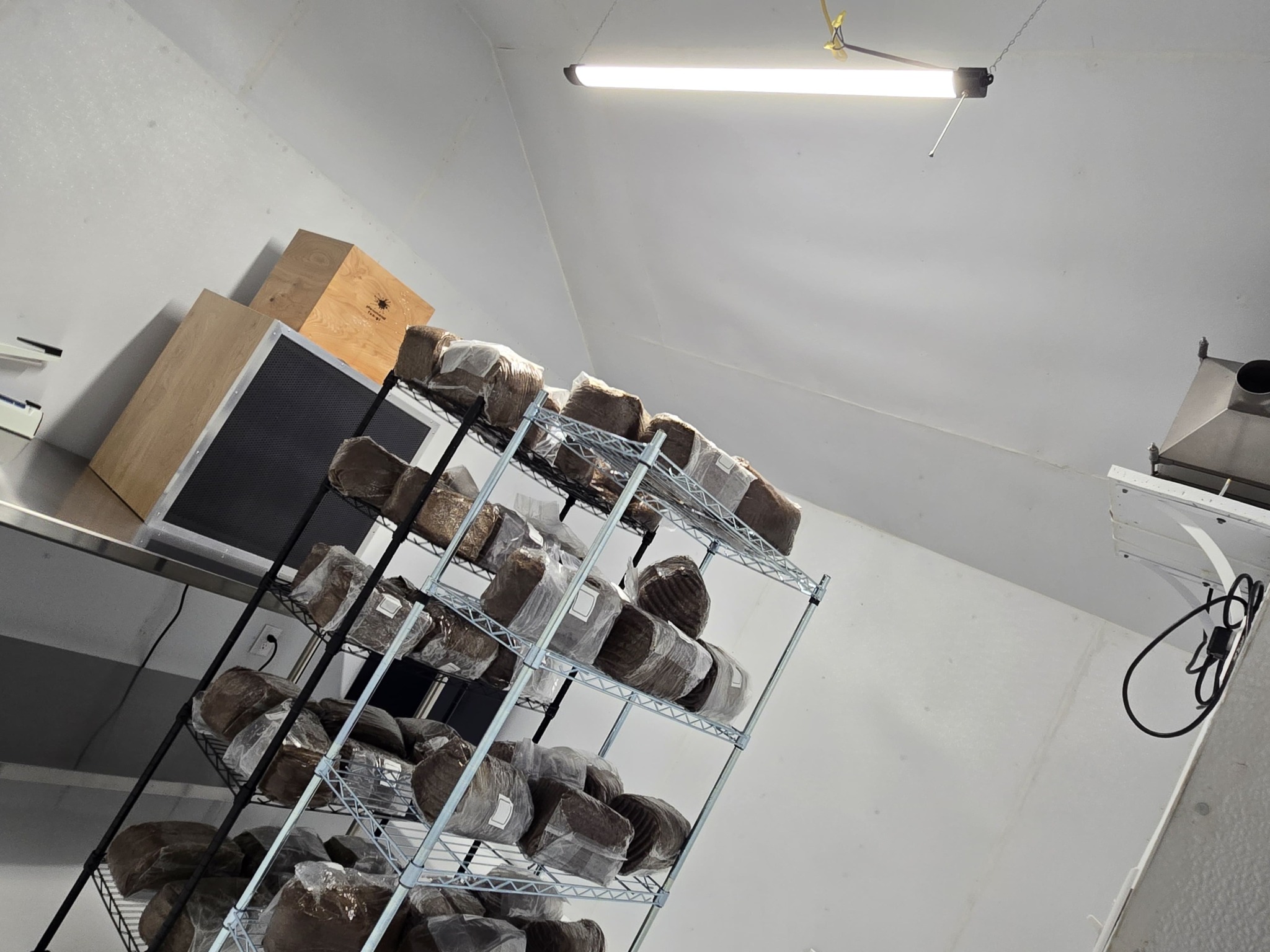
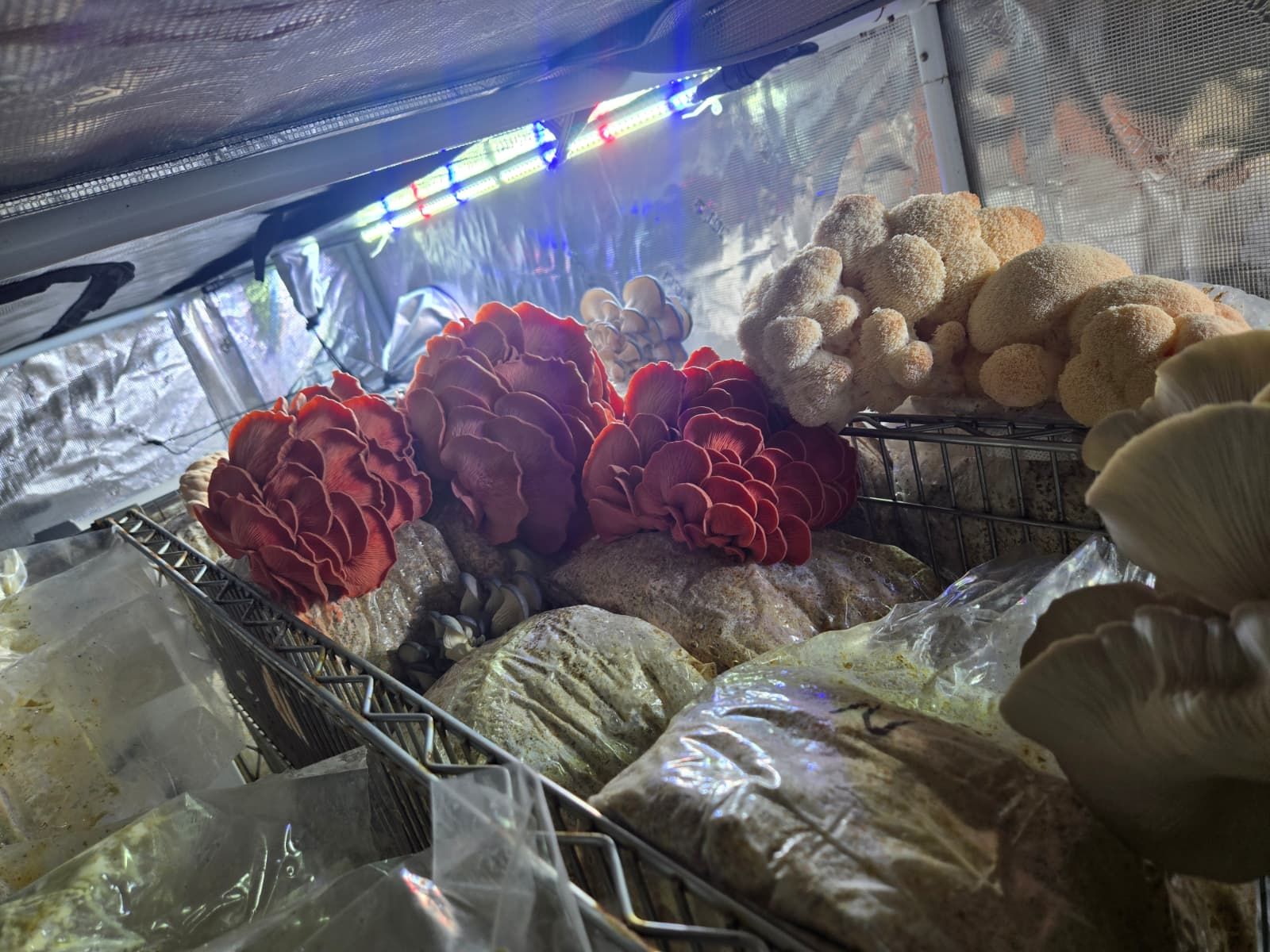
Do you have multiple revenue streams – if so, can you talk to us about those streams and how your developed them?
We’ve had to be creative to keep the farm sustainable, so yes—there are several ways the business supports itself. The foundation is still the traditional model of selling at farmers markets and supplying restaurants. But because markets overlap and we can’t physically be in two places at once, we started a subscription program called Monthly Mushies. Once a month, we deliver fresh mushrooms directly to households. People choose how much they want and what varieties, and it gives them access to species we may not always bring to market.
From there, we expanded into products that extend the life of the mushroom. We dehydrate them, grind them into powders, and even make jerky. Right now we’re working with local roasters to launch our own mushroom coffee. We also sell grow kits so people can take home the experience and cultivate mushrooms themselves.
Beyond food, education has become one of our most important streams. We run cooking workshops with local chefs, cultivation classes, and creative community events like Shroom Bloom, where people design mushroom and edible flower bouquets and then enjoy them alongside wine and charcuterie. On a larger scale, our DMA (Developments of Mycelium Applications) initiative connects global experts to learners all over the world, and we’ve started adapting that material into enrichment programs for schools. That allows us to introduce kids as young as nine or ten to the science and possibilities of fungi.
Each of these pieces feeds the others. The farm fuels education, education grows the market, and the market makes room for more partnerships. Together, they allow All Caps to survive as a business while pursuing the deeper mission of inspiring a regenerative future.
Contact Info:
- Website: [email protected]
- Instagram: allcapsfarm
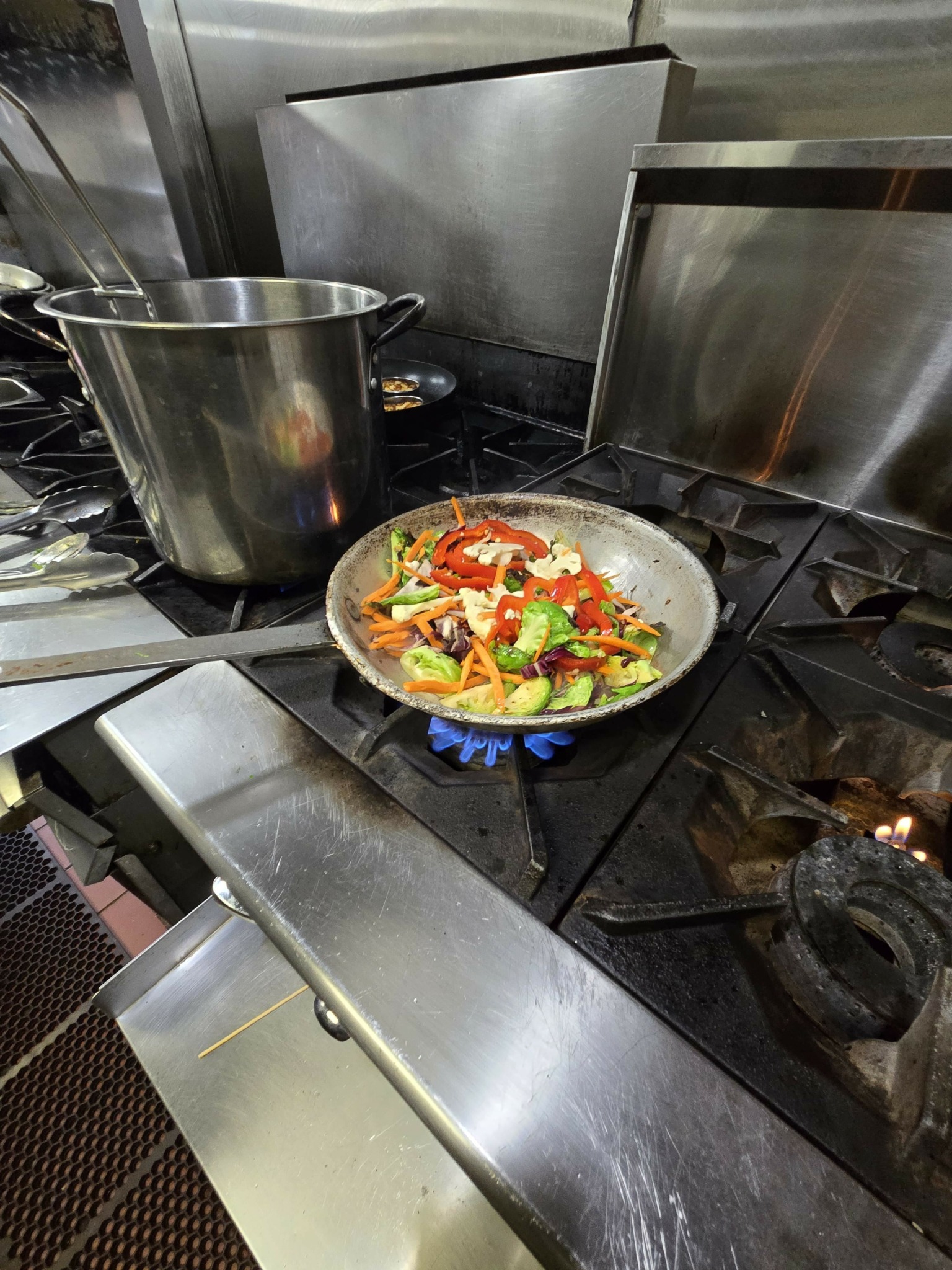
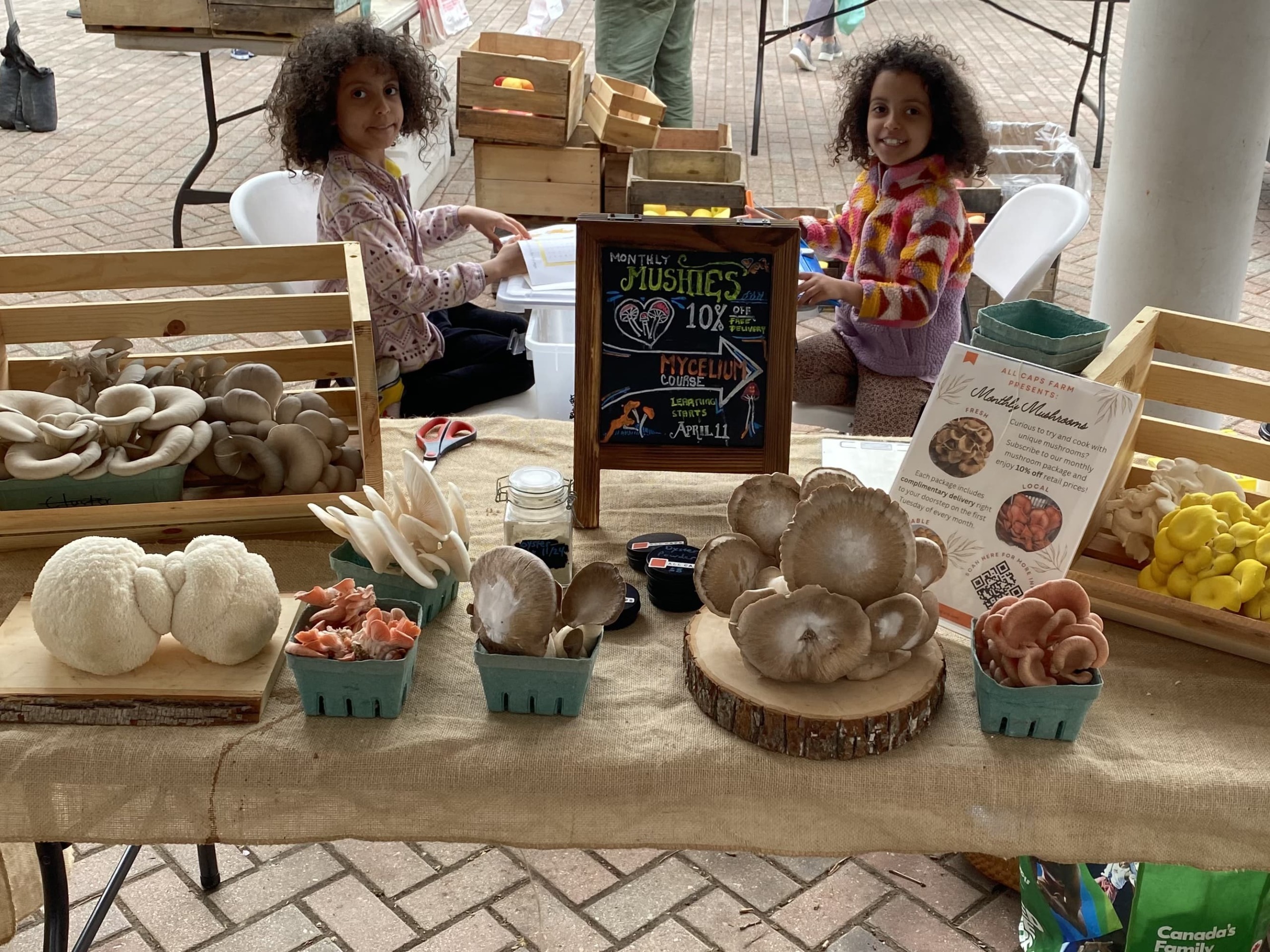



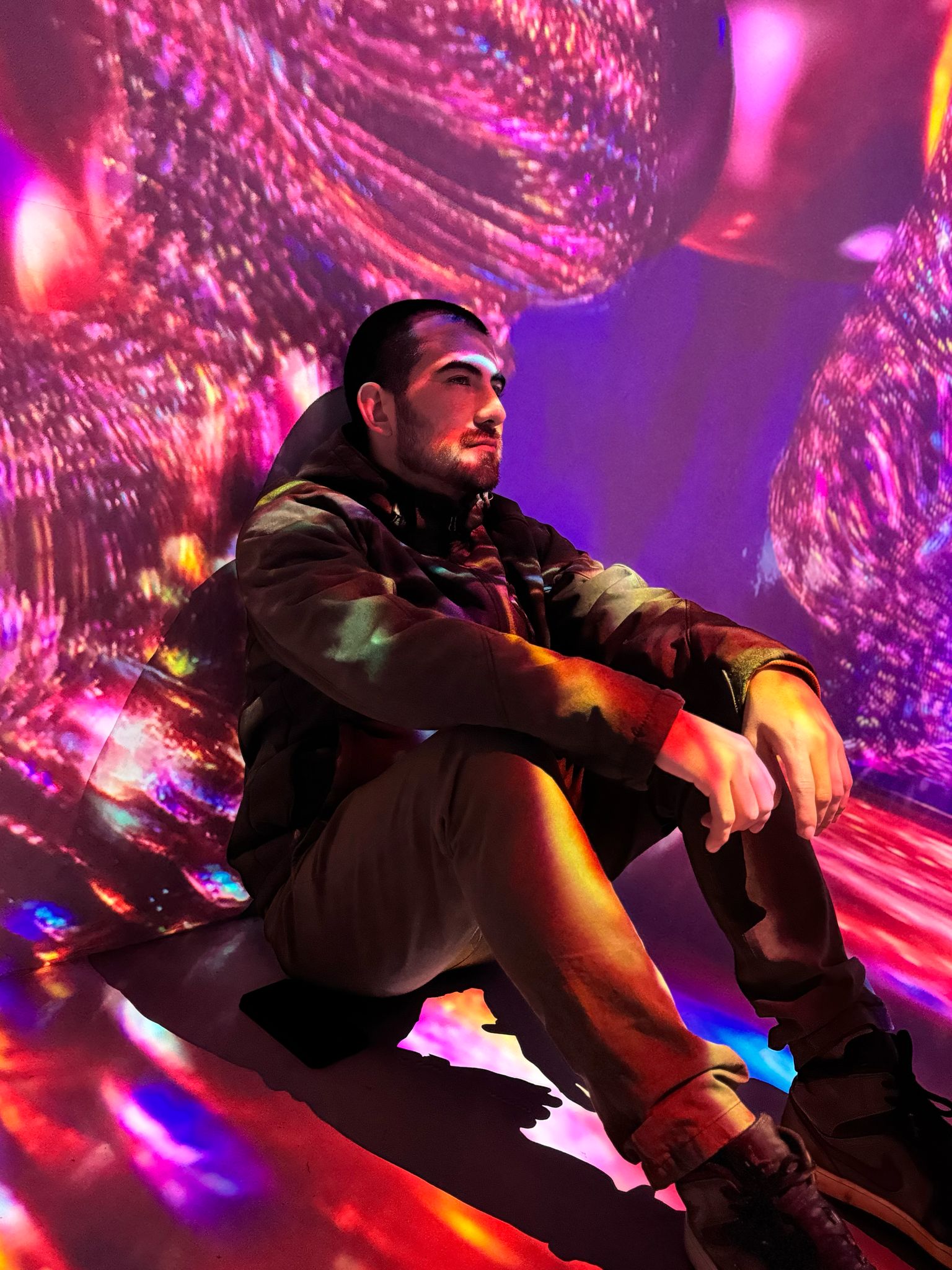
1 Comment
Michelle M
Love to see the local DMV mushroom scene flourishing!